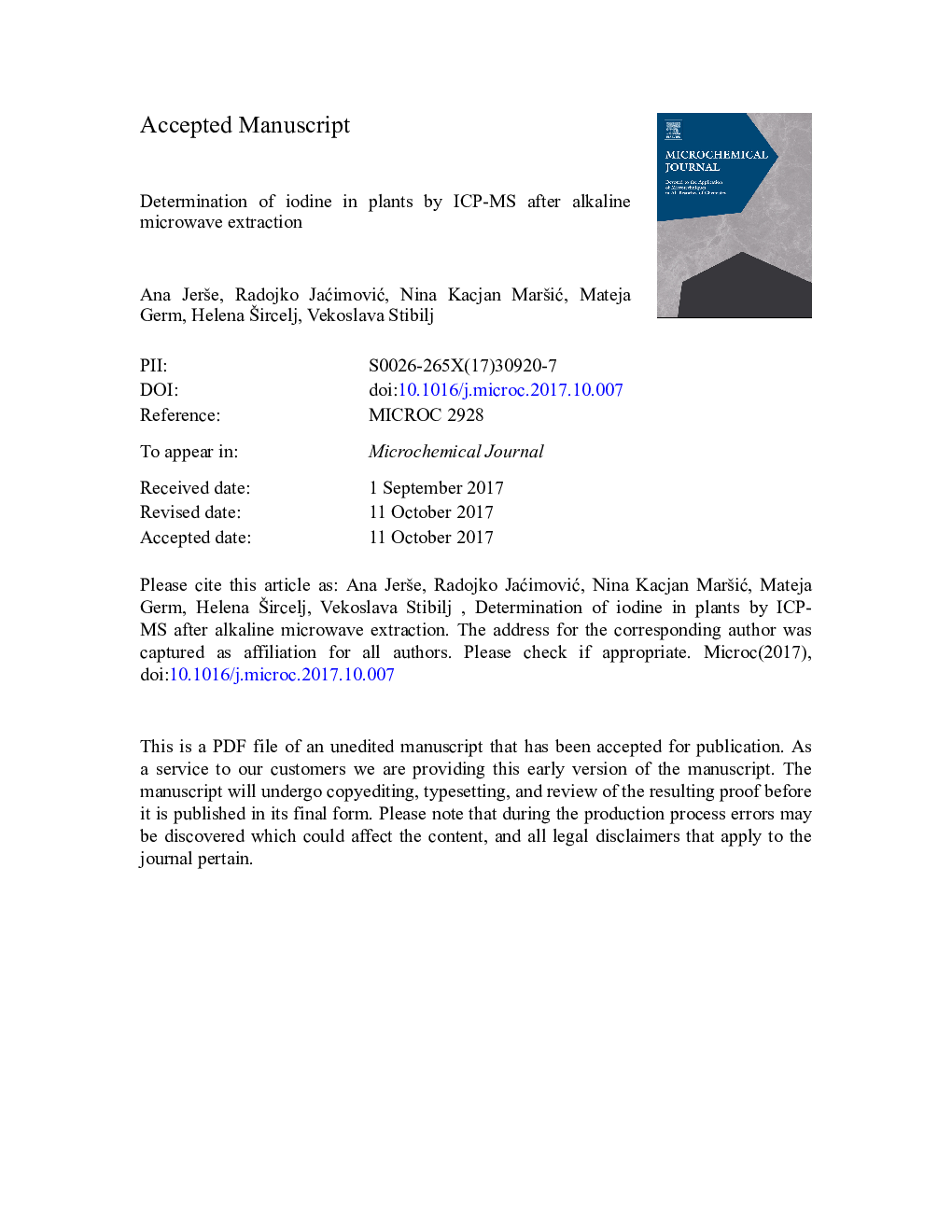| Article ID | Journal | Published Year | Pages | File Type |
|---|---|---|---|---|
| 7641010 | Microchemical Journal | 2018 | 27 Pages |
Abstract
Iodine is an essential element, important for normal thyroid function. Due to the frequency of health problems associated with its insufficient intake, new or additional sources of iodine have to be investigated. One of them could be iodine enriched plants. Before introduction into the human diet, the iodine content must be known as precisely as possible. A method of iodine determination in various plant samples by inductively coupled plasma mass spectrometry (ICP-MS) after alkaline microwave extraction was optimized. Among the tested ratios between TMAH and water, the ratio 1:5 was found to be optimal, using the following temperature program: 20 min ramp to 200 °C and 5 min hold on 200 °C. For measurements, 0.1% TMAH solution was chosen as optimal, using helium in the collision cell. A calibration line, for which standards were prepared in 0.1% TMAH, can be used for quantitative determination of iodine content. Measurement uncertainty was estimated to be around 30% for samples with low iodine content (around 0.2 μg I/g) and below 7% for samples with higher iodine content (0.7 μg I/g). Detection limits were 20 ng/g of sample or less and good repeatability of the measurements and linearity over a wide concentration range were found. The results obtained by the optimized method were compared to those obtained with an independent method (k0-INAA), and they showed very good agreement, proving the accuracy of the determination by ICP-MS. Finally, iodine content was determined in samples with different matrices: pea seeds, pumpkin seeds and buckwheat achenes, from plants foliar sprayed with iodide or iodate solutions at the time of blooming.
Related Topics
Physical Sciences and Engineering
Chemistry
Analytical Chemistry
Authors
Ana JerÅ¡e, Radojko JaÄimoviÄ, Nina Kacjan MarÅ¡iÄ, Mateja Germ, Helena Å ircelj, Vekoslava Stibilj,
